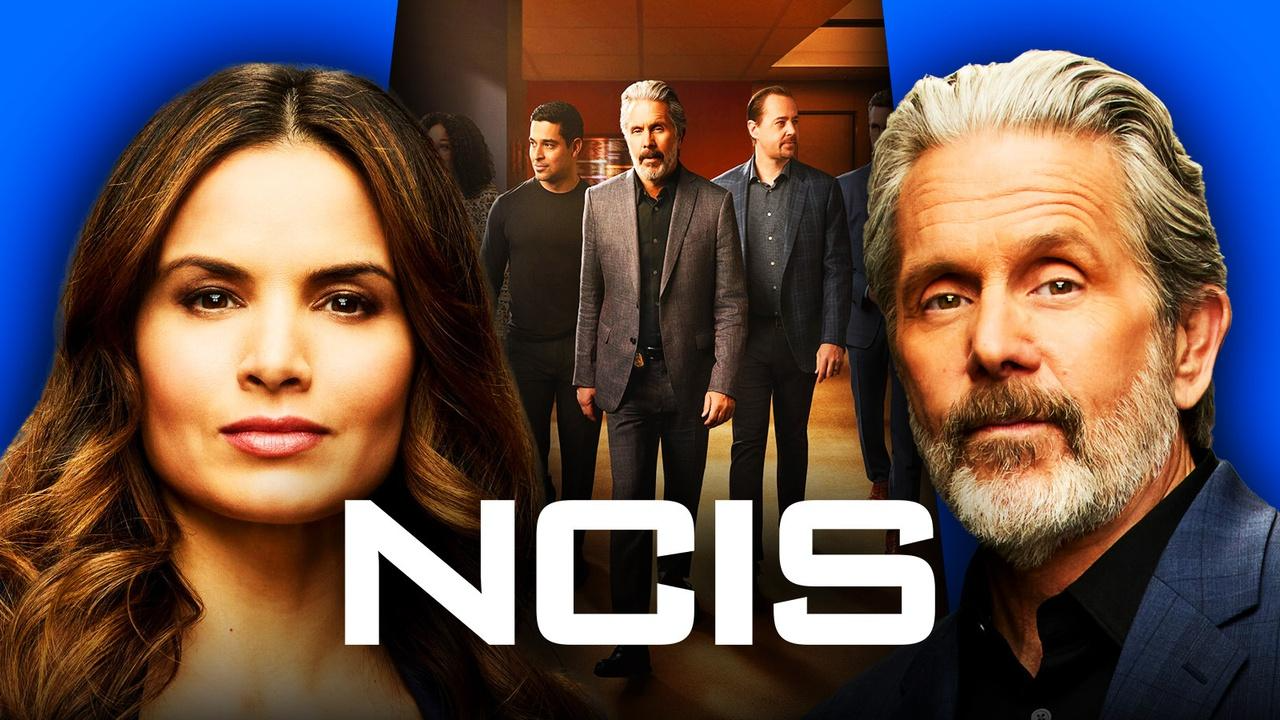
The long-running procedural juggernaut NCIS is gearing up for its 23rd season — a monumental milestone for any show. But with great legacy comes even greater responsibility. And let’s be honest, NCIS, we need to talk. Your villains? They’re starting to feel more like filler than fearsome. It’s time for a change.
In this deep-dive, we’ll look at why villains matter more than ever in a show like NCIS, how the series has faltered in recent seasons, and what needs to happen in Season 23 to give fans the high-stakes drama they’ve been craving.Why Villains Are the Lifeblood of Crime Dramas
The Villain Drives the Plot
Think about it: would The Dark Knight be iconic without Heath Ledger’s Joker? Probably not. Villains in crime shows like NCIS serve as more than just criminals-of-the-week — they’re the fire that pushes the heroes to their limits.
Memorable Villains Leave a Mark
Fans still talk about Ari Haswari, Harper Dearing, and Trent Kort. Why? Because they weren’t just bad — they were brilliant, layered, and personal. That’s the key.Where NCIS Has Been Dropping the Ball
One-Episode Wonders Aren’t Cutting It
Recently, many villains are introduced and wrapped up within a single episode. That’s like giving someone a single French fry and calling it dinner. It’s unsatisfying and forgettable.
Lack of Emotional Stakes
Without personal ties or emotional consequences, viewers don’t feel invested. If the villain doesn’t affect the team on a deep level, what’s the point?
The Recipe for a Great NCIS Villain
Give Them a Backstory That Hurts
We don’t just want bad guys. We want enemies with motivations that challenge the core of the NCIS team. Make it messy. Make it personal.
Make Them Smart — Like, Gibbs-level Smart
A villain who can outwit the team? That’s suspense. That’s tension. That’s must-watch TV. Outsmarting McGee or outmaneuvering Torres should feel like a genuine threat.
Keep Them in the Game Longer
A multi-episode or even season-long arc for a villain builds pressure and gets the fandom talking. Remember how NCIS: LA milked the mole storyline for seasons? Yeah, that worked.
Season 23: A Golden Opportunity
The Slate is Clean. Now Build Something Incredible
With so many original cast members gone and new faces in the mix, there’s room to redefine the emotional tone of the show. That starts with a villain who truly rattles the cage.
Give the New Team a Personal Nemesis
Knight, Parker, and Torres each need someone who tests their limits, digs into their past, and exposes vulnerabilities. Think psychological warfare, not just car chases.
Lessons From TV’s Most Iconic Villains
Breaking Bad’s Gus Fring — The Devil in a Suit
Gus wasn’t loud. He was calculated. Chilling. Professional. That made him terrifying. NCIS needs more villains who don’t scream — they smile.
The Mentalist’s Red John — Mystery That Gripped Fans
Building a legend around a villain works. Fans love a puzzle. Keep us guessing, dropping clues like breadcrumbs, and the payoff becomes explosive.
Avoiding the “Villain of the Week” Trap
It’s Been Done to Death
The weekly structure works, sure, but to stand out in 2025’s streaming-dominated world, NCIS needs overarching narratives that build anticipation.
Invest in Villain Development Like a Main Character
If your antagonist has depth, screen time, and moral ambiguity, they stop being “bad guys” and start being “must-see characters.”
Create Real Stakes That Stick
Let Them Win Occasionally
If the villain always loses by 42 minutes in, where’s the tension? Let them escape. Let them wound someone. Make the team feel vulnerable again.
Consequences That Last Beyond One Episode
Maybe they kill an informant. Maybe they frame someone. Maybe they leave a bomb in someone’s emotional life. Whatever it is, make it matter long-term.
Let the Villain Challenge the NCIS Philosophy
Question the System
Great villains make us think. Maybe they were ex-agents betrayed by the government. Maybe they reveal a crack in the very system NCIS defends. That’s drama. That’s relevance.

Force Moral Dilemmas
The best conflict isn’t good vs. evil. It’s good vs. good with bad methods. Make the agents question their own code. Make the audience uncomfortable.
Give the Fandom Something to Rally Around
Villains Fans Love to Hate = Engagement Gold
Want Twitter/X buzzing? Reddit on fire? Give fans a villain that makes them scream at their TVs and type at their keyboards. That’s how you go viral.
Merchandise, Memes, Theories — It All Starts With a Great Villain
A well-written bad guy becomes part of the fandom’s DNA. People cosplay them. Quote them. Ship them. You want viral? Start with your villain.
Conclusion: Don’t Let Season 23 Be Another Missed Opportunity
NCIS has a loyal fanbase and a legacy that spans over two decades. But if the villains remain undercooked, Season 23 risks being more of the same — and not in a good way. Fans are begging for deeper stories, lasting stakes, and characters (even villains) who leave a mark. The writers have the talent. The cast has the range. Now it’s time to bring in villains who truly terrify, surprise, and captivate.
FAQs
1. Why are strong villains so important for NCIS?
Strong villains raise the emotional and narrative stakes, making the episodes more memorable and engaging.
2. Who are the most iconic NCIS villains so far?
Ari Haswari, Harper Dearing, and Trent Kort are often cited as fan favorites due to their impact on the team.
3. What kind of villain should NCIS introduce in Season 23?
A long-term, psychologically complex antagonist who personally challenges the team and tests their beliefs.
4. How can NCIS keep the villain storyline interesting?
By giving the villain depth, real motivations, and multiple episodes to develop — not just a quick resolution.
5. Has NCIS ever done a successful villain arc before?
Yes — arcs like Ari’s and Dearing’s proved that slow-burn villain development can work incredibly well in the NCIS format.